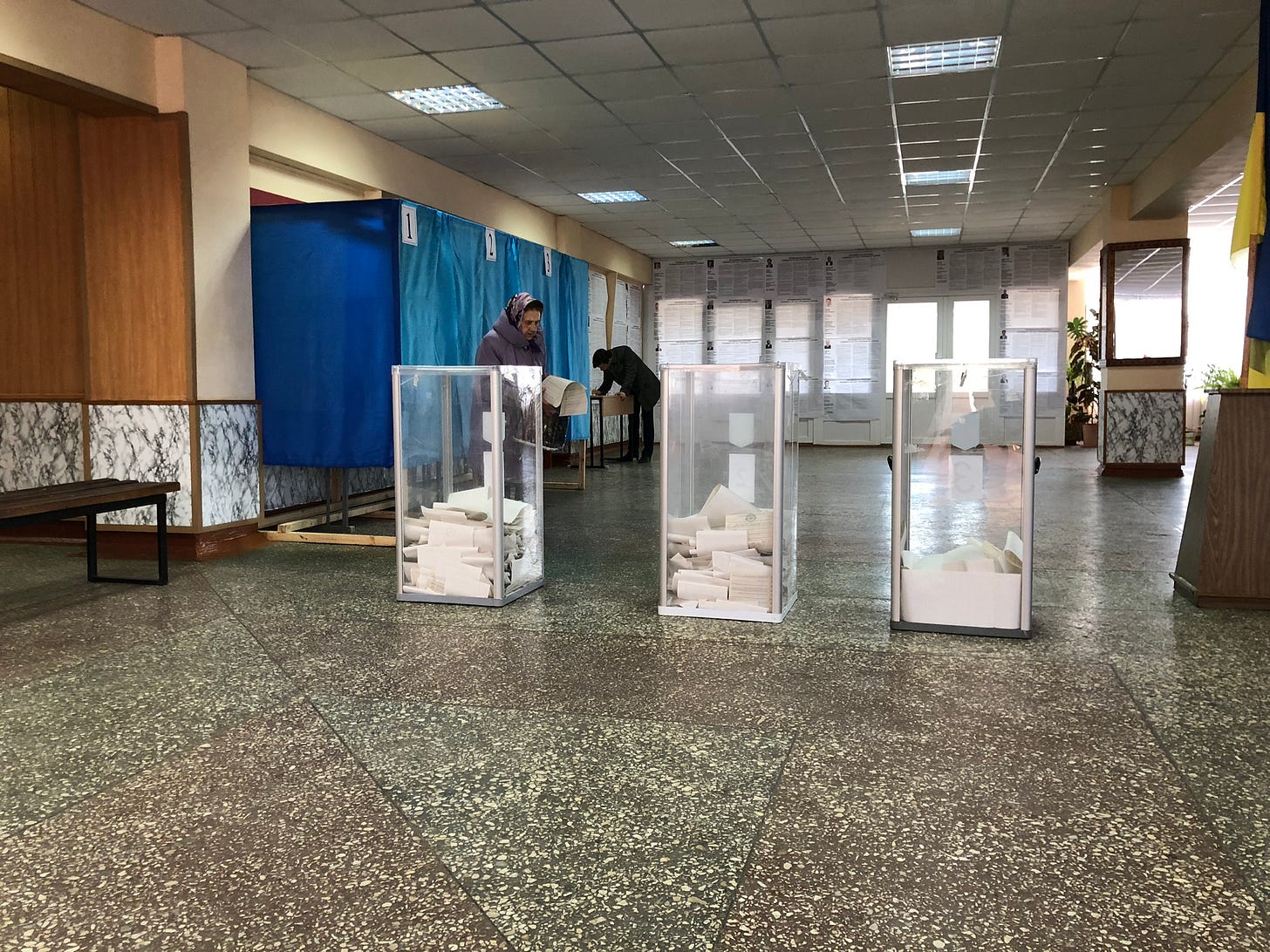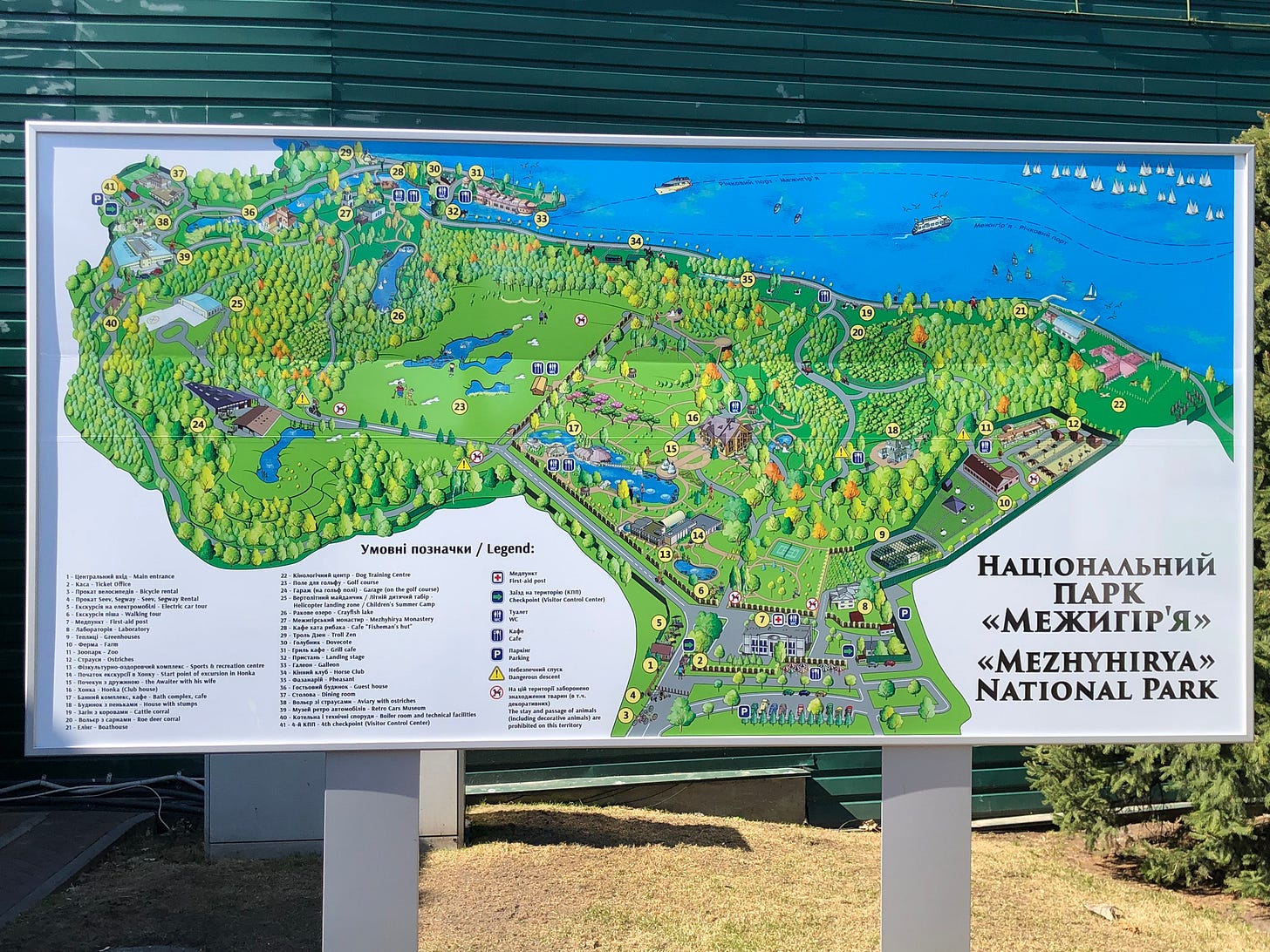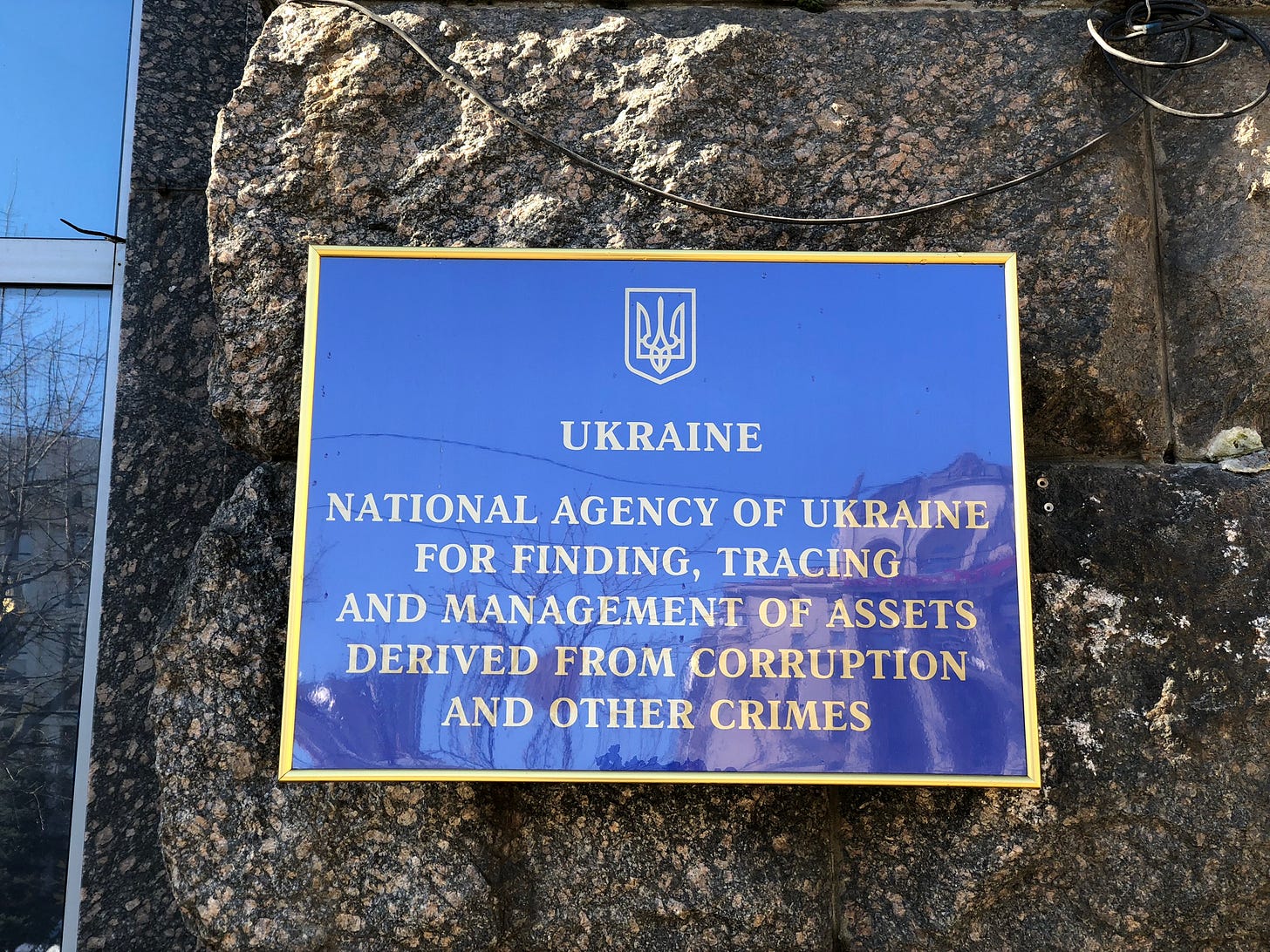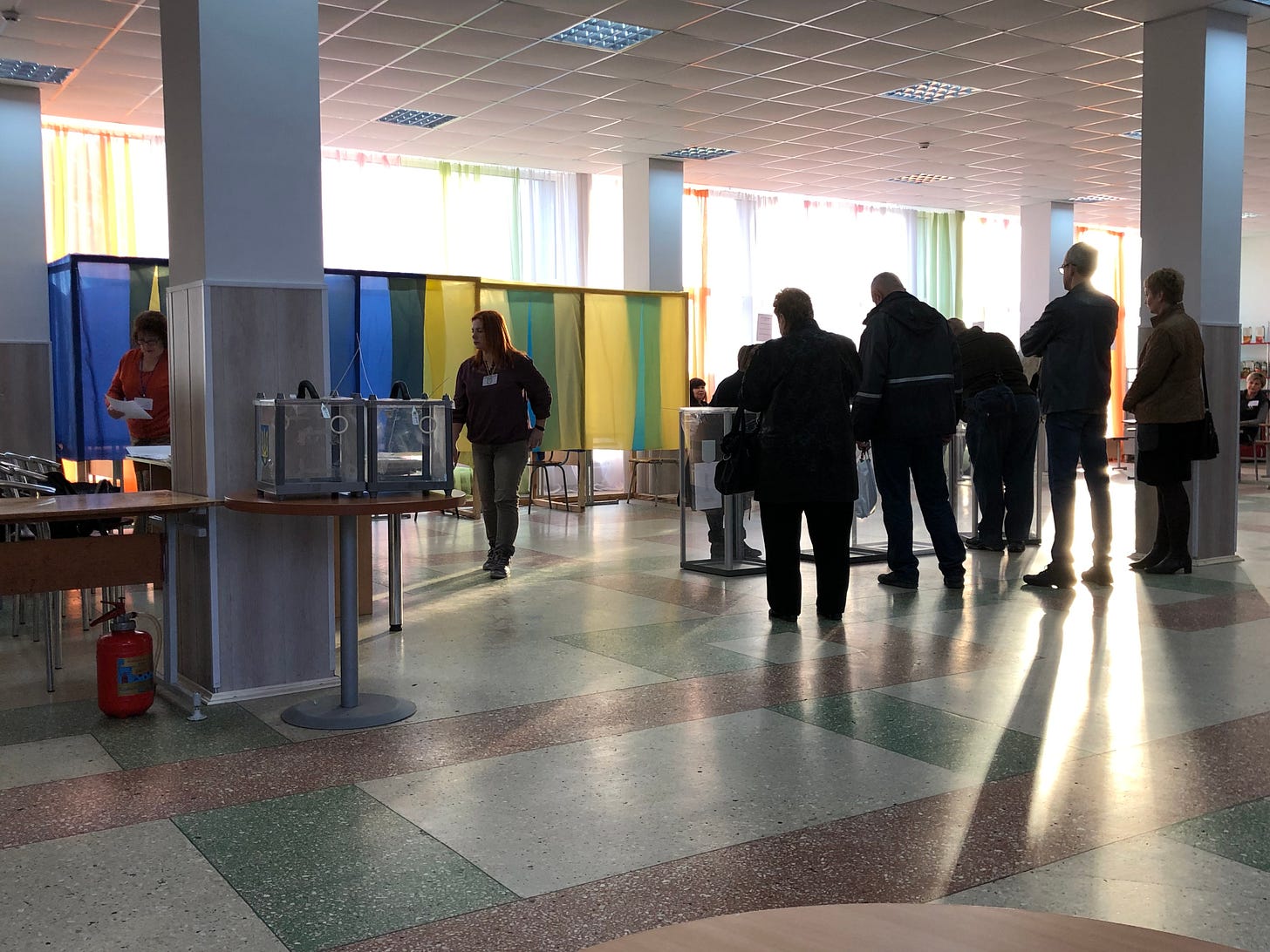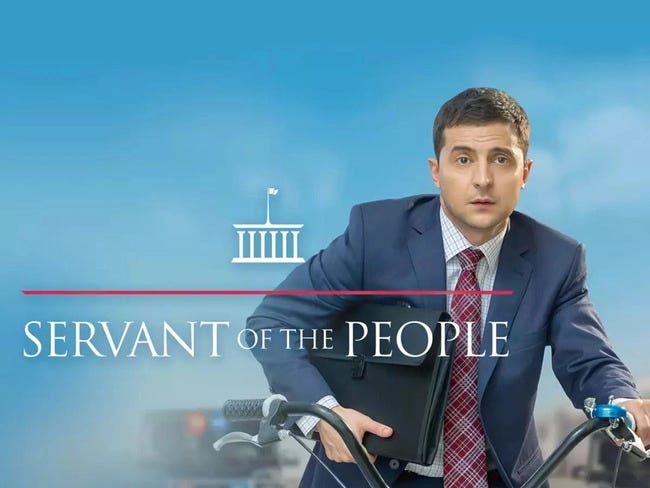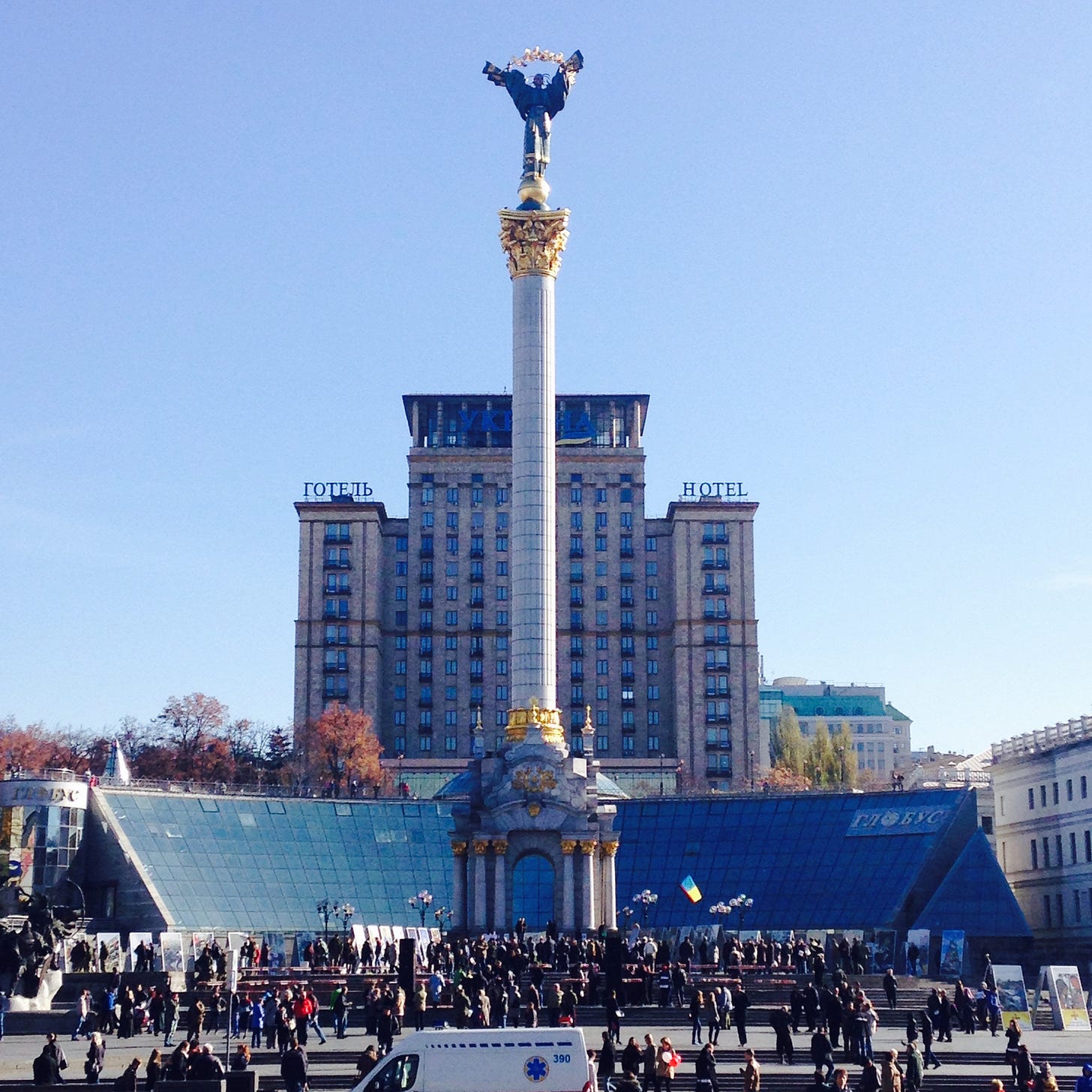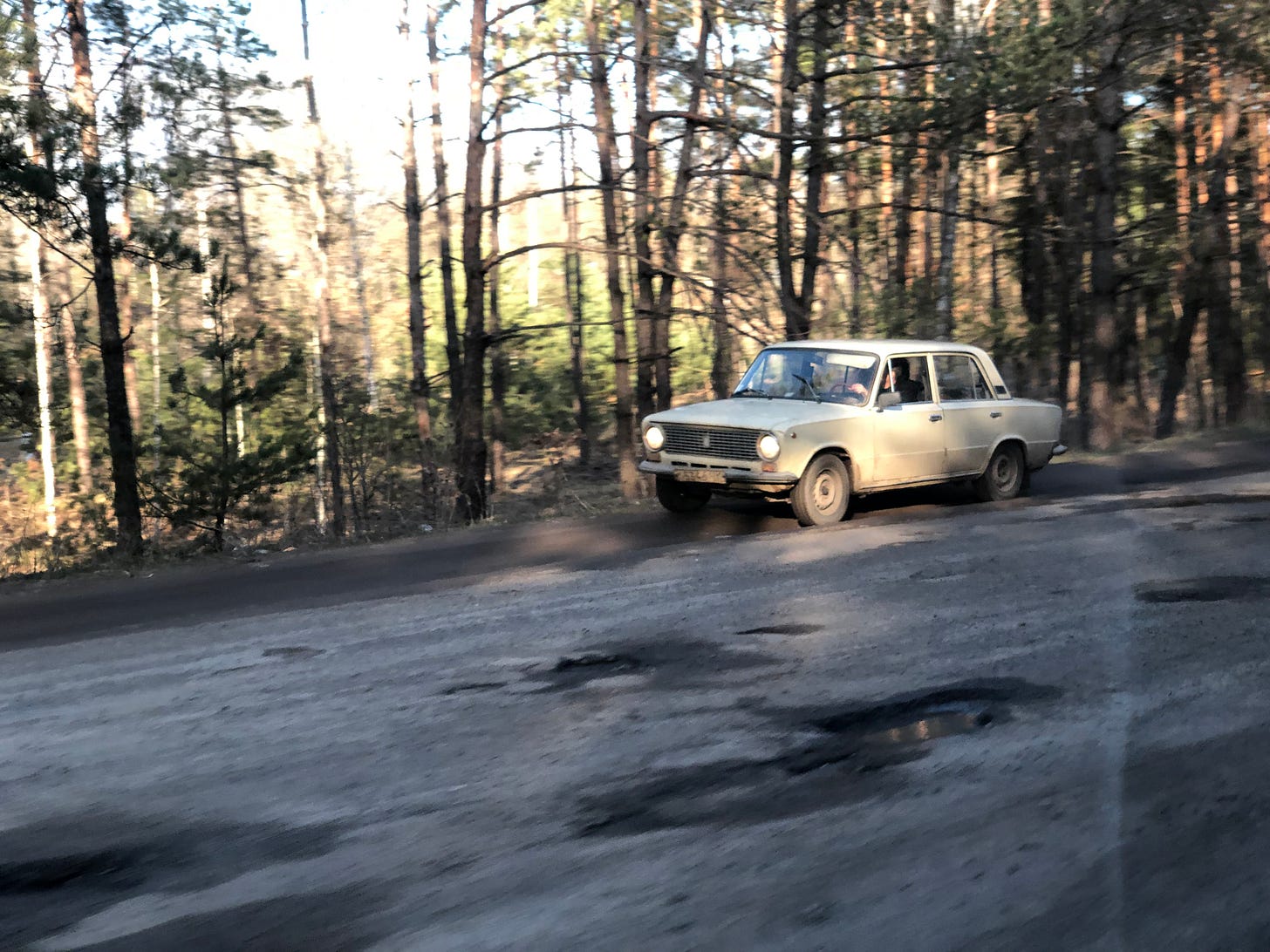Day 275
A different kind of Black Friday
My abiding image of Ukraine is of dignified older women. Getting their groceries. Sweeping their front porches or the areas around their homes. They didn’t have much, but what they had they were happy to share, as I found out time and time again.
In the fall of 2014, I joined an International Election Observation Mission (IEOM) to Ukraine. This one was organized by the Canadian government, given that we have the largest Ukrainian diaspora in the world here in Canada.
My first encounter with Ukrainians was as a new immigrant to Canada myself, in the early 1980s. As a result of the Troubles — that cruelest of euphemisms that denotes the period of armed British intervention, paramilitarism by those loyal to the Crown and those seeking a (re)united Ireland, in which over 3500 people died — my parents made the difficult decision to leave their families in Northern Ireland and immigrate to Canada with me.
We ended up in Shoal Lake, Manitoba, then home to ~1000 people and two grain elevators. Like many parts of rural Manitoba [as outlined brilliantly and insightfully in the book Valley of the Birdtail: An Indian Reserve, a White Town, and the Road to Reconciliation, by Andrew Stobo Sniderman and Douglas Sanderson] Shoal Lake was a town of immigrants whose fortunes rose and fell with the harvest. Shoal Lake was only a half hour’s drive from Rossburn, the town profiled alongside the Indigenous community of Waywayseecappo.
I went to school with many second generation Ukrainian immigrants, and was cared-for by and regularly interacted with many first-generation Ukrainian immigrants. When people note my lack of a strong Irish accent today, I usually - only half-jokingly - attribute it to chiding from classmates and Ukrainian babushkas about my strange way of speaking as a grade school kid with a Northern Irish accent.
Over the years, both during my service in government and outside of it, I’ve come to count many Ukrainian immigrants and their families as friends. But I had never visited Ukraine myself until 2014.
The 2014 Parliamentary elections were the first following the Maidan revolution that Spring, as the country tried to shake off the shackles of the oligarchs and political klepto-leaders who had ruled over the world’s breadbasket for decades.
Maybe you’ve read about the decadent tastes of Viktor Yanukovych, Ukraine’s last autocrat? He kept an estate, a short bus-ride from downtown Kyiv, known as Mezhyhirya. The grounds contained a Zoo (with Ostriches), an antique car museum, a helipad, a building the size of a school used for state dinners, a boating canal, churches, giant statues and pieces of furniture, a replica schooner, stables, a golf course…you get the drift.
This estate was the kind of place where Shame went to die, in pampered luxury.
Today, it is a national park. But in 2014, things were still very raw and new. And the foreshadowing of Russia’s “Special Military Operation” (read: Invasion) of Ukraine this year was well underway with the seizure of Crimea, and military action in the Donbas region in Ukraine’s east.
This conflict in the East could seem a bit abstract if you were only in Kyiv, or the West of Ukraine, as I was that time. It wasn’t until I met a woman at a hospital - doubling as a polling station - in Zhytomyr Oblast (province/state), not far from the Belarussian border, that I began to understand the stakes.
She had two sons who were fighting for the Ukrainian government forces. She saw me, an expat with presumably more influence than her who had come to monitor their elections, as being able to do something to stop it. She took my arm, looked me in the eye and - with the help of my young translator @papersunkid asked me to do something; to help bring her sons home safely. To stop Putin and his warmongering. This was 8 years ago.
(Shameless plug: My then-translator lives in New York now. He’s a talented photographer. Reach out to him on #Instagram with his handle @papersunkid if you think you could use his services!).
No elections are perfect - especially in a nascent democracy with major international scrutiny and which is deeply-infiltrated by sleeper agents and foreign nationals intent on overthrowing the democratically-elected government. But the 2014 election was, according to OSCE observers, the Canadian observation mission, and others, “free & fair”.
What I witnessed most often were everyday citizens who took their responsibilities seriously. Who carried their duty to their fellow citizens on their sleeves. And, likely correlated with this seriousness and lack of self-importance - the election was administered at the local level disproportionately by women.
Five years later, in 2019, the incumbent President Petro Poroshenko (owner of the confectionary chain Roshen), was being challenged by Volodymyr Zelenskyy, star of the popular TV series Servant of the People. If you haven’t heard of this, it’s a must-watch show, available on Netflix.
In a moment of art-imitating-life, Zelenskyy had played a school teacher, fed up with all the oligarchs and corruption, whose students crowdfunded a campaign in which he wins the Presidency on the TV show Servant of the People. Now he was a leading contender for the job in real life (IRL).
As part of the Canadian IEOM for the first round of the Presidential elections in March 2019, the sense I got from people young and old alike was: ‘Why not try something new? Could he be any worse than the elites? He might even be better.’

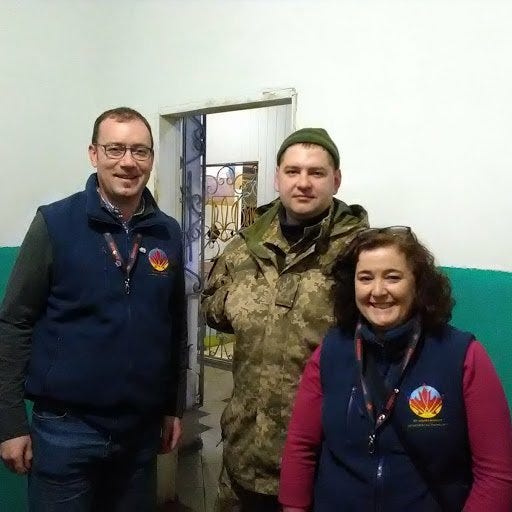
Even the prisoners at the correctional facility polling station I visited with my Short-term Observer (STO) colleague seemed interested in the non-politician, politician.
And there was choice on that ballot - a plethora of choice, with more than 40 candidates in the running. I met a grandmother outside a polling station in Cherkasy Oblast on Election Day, who wanted to tell me about how things had changed during her lifetime.
“In years past - before 2014 - there was music, and balloons everywhere when we came to vote. Sure, there was only one name on the ballot, but it was more like a party then. Now, so boring and so many names…who even knows who to vote for?”
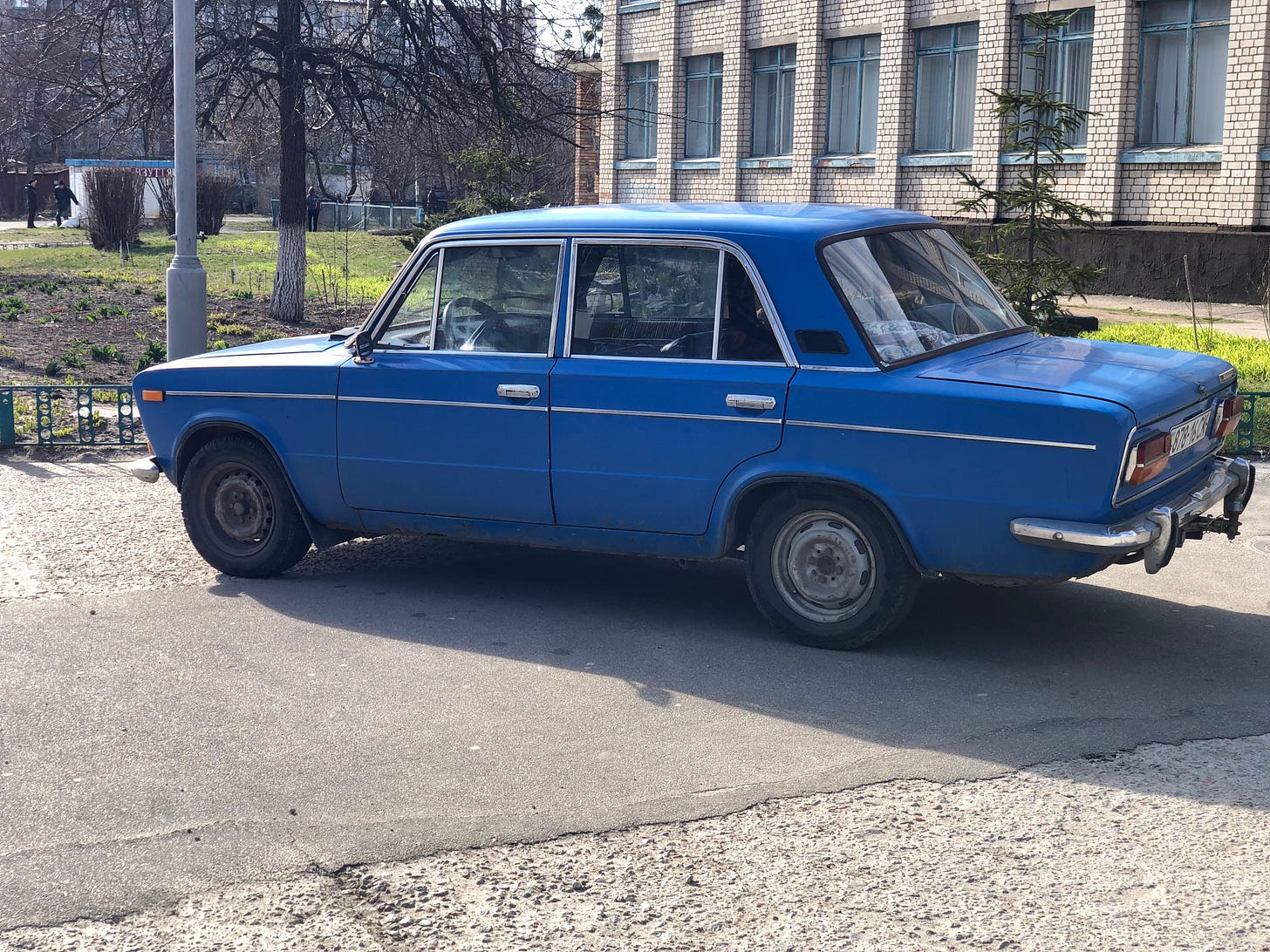
In a field of choice, with democracy settling in and people tiring of Poroshenko, Zelenskyy won the Presidency IRL and became their servant and leader in ways we could scarcely have imagined.
Just under 3 years into his leadership of Ukraine, Russian President Vladimir Putin launched a “Special Military Operation”, aimed to “de-nazify” Ukraine and eliminate its leadership, in a naked attempt to return it to some sort of Soviet-era colony of Mother Russia.
And here we are, 275 days later.
As of early this week, the Office of the United Nations (UN) High Commissioner for Human Rights reported a verified civilian death toll of 6,595. This included 415 children. In addition to these deaths, another 10,189 have been injured. Officials believe the actual numbers are much, much greater.
At last count, more than 7 million Ukrainians were internally displaced, mostly in the Western regions of the country, while overall a reported 12 million people are displaced from their homes - inside or outside the country. For reference, that is about 1/3 of the population of Canada.
A few million of those people have ended up in Russia, by choice or lack thereof.
Canada has opened up immigration and resettlement streams, as has the United States.
Many European countries have received refugees from Ukraine. The man who acted as my translator in the 2019 election mission had to send his wife and young child to Germany this Spring to assure their safety. He was not permitted to leave the country with them, as with all adult males between the ages of 189-60, in case their service is required in the nation’s defence.
The European countries that border Ukraine, particularly Poland, have taken in millions of refugees. In the early days of the invasion, there were line-ups stretching for miles at border crossings, with people taking their most treasured and necessary possessions to a new and uncertain life.
A few young friends were among those lining up to resettle - temporarily - in Poland.
During the 2014 election, after we returned to Kyiv from our observation areas, an old friend with whom I used to work in the Manitoba government and I went out for a walk. He’s gregarious and personable in the most endearing of ways. We struck up a conversation with a group of younger people visiting Kyiv from the Kharkiv region, and once they heard why we were in their country, they suggested we go grab a beer. We shrugged and followed them.
He and I were both eager to hear from these first-time voters how their experience of democracy had been, and they no doubt to hear of a land their countrymen and women had been immigrating to in droves over the last century.
We had a fascinating conversation with a lot of laughs, and we wandered around Kyiv with them for part of the evening, discovering the sights together. We’ve kept in touch on social media over the years.
As the bombs started to hit Kharkiv, we worried over their safety. One group of them left Kharkiv, taking a harrowing ~25-hour bus ride to Lviv in the West, before making their way to Krakow, in Poland. They were among the ~1 million Ukrainians who sought refuge in this city with a pre-war population of 800,000 people. Now, they are among the 300,000 refugees remaining there, and hoping to find their way to Canada.
They describe watching what is happening in their home of Kharkiv like watching a “horror movie”. Those who remained there have endured shelling and destruction on a horrific scale. Even now, with the city less impacted by from Russia’s incessant attacks, there is intermittent electricity and no water.
In a Reuters piece filed a month ago, a local resident of the city of Mykolaiv outlined how a necessity like water has been weaponized, as they queued for water: "This is the way we live," lamented Yaroslav, 78, a retiree who worked at the Chernomorsk Shipbuilding Yard, as he queued behind Sveta. "We live through one day and there is no joy and then there is the next day."
The Russians have targeted civilian infrastructure, like dams, water treatment and wastewater systems, methodically and ruthlessly.
As we have variously read with great horror, they have attacked hospitals, too.
And the economic toll is almost incalculable.
A Canadian think-tank (the CD Howe Institute) tried to come up with an estimate in August.
As at the five-month mark of the invasion/war, the institute estimated the cost to be roughly equivalent to all Canadians’ earnings for 4 years, or $8.5 trillion. On a straight line basis to today, that would extrapolate to about 6.5 years’ worth of Canadians’ earnings so far, or something approaching $14 trillion.
Yes, trillion with a “T”.
And the economic and social impacts on our global energy situation will reverberate for decades.
At a renewable energy conference earlier this week, the sense of urgency for energy independence was almost manic. While western governments are moving at veritable warp speed from the perspective of the bureaucracy, the private sector is chafing as the Overton window for serious action shrinks into the pressures and looming black hole of a global recession.
Notwithstanding the amazing effort of the Ukrainian defence forces, and the routs they have delivered to the Russian forces, here we are on day 275 with no real end to the conflict in sight.
Winter has arrived.
It is below freezing in many parts of Ukraine today.
There has been much speculation about the effect of General Winter - the term for the effect of winter weather in an armed conflict like this, which played in the Russians’ favour against Napoleon. Only time will tell how effective General Winter is, and against whose military.
Meanwhile, millions of people remain displaced. Millions are without the necessities of life. Many people will undoubtedly freeze this Winter.
Canadians and others gave generously in the early days of the invasion. People created fundraisers, many without fanfare or publicity, and gave the money to great organizations like that overseen by my friend Ihor - the Ukrainian Canadian Congress.
It’s Black Friday today in the US, and because of the economic hegemony of our southern neighbour and the advent of e-commerce, it’s Black Friday everywhere.
Only today, in Ukraine, Black Friday has a very, very different meaning.
So maybe amidst the hunt for deals and as people begin to tick off items from their Christmas lists, we can all spare a few minutes - and a few dollars - for our fellow peace-seeking humans in Ukraine.


